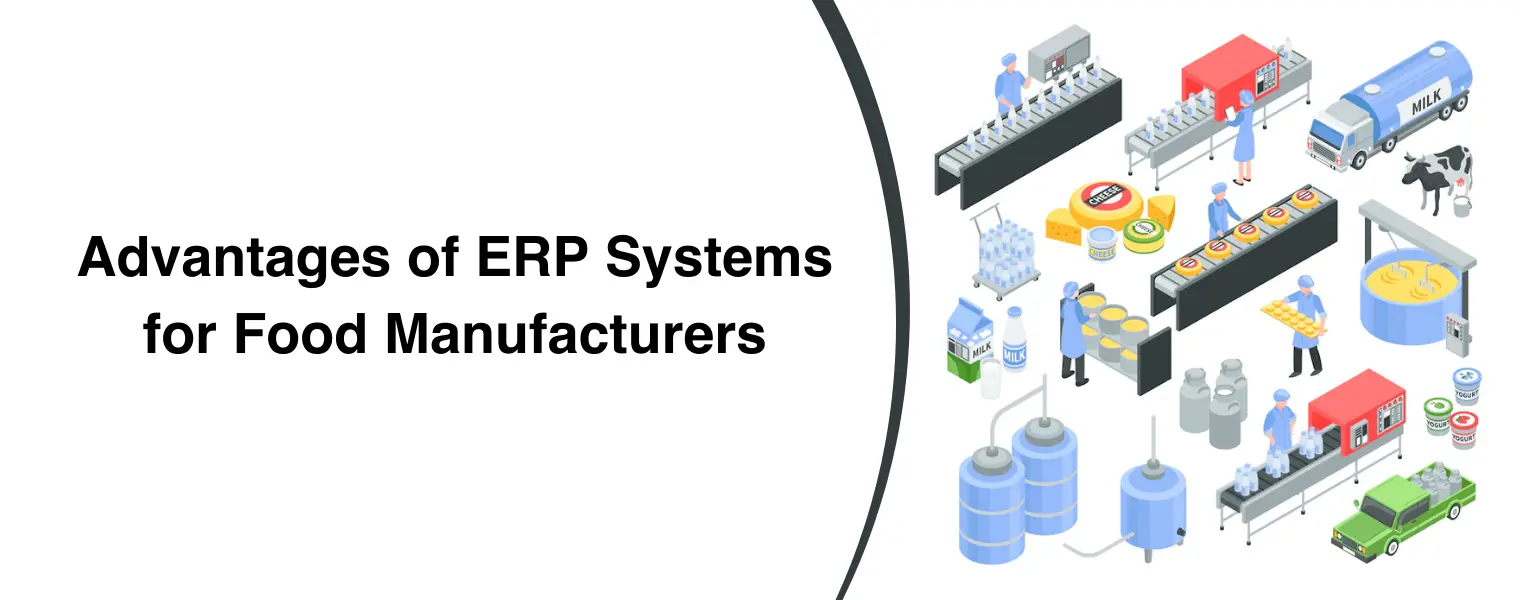
ERP systems have many advantages, but due to their traceability and production management features, they can be especially beneficial for food manufacturers.
Here are some of the most significant advantages: -
Investing in technology to streamline your operations will help you save money and cut down on inefficiencies. Employees will be able to focus their efforts on tasks that require the use of their intellect rather than manual tasks such as updating data for every area of your business. Consolidating systems eliminates the need for multiple systems, and managers will be able to access a variety of dashboard-style reports to quickly see information such as whether the production line is running smoothly and outstanding sales orders against inventory levels in one place.
ERP systems greatly facilitate batch traceability. The entire product journey can be traced and logged for compliance and food safety requirements, from the receipt of raw materials to the dispatch of finished goods. ERP can help with barcoding, labelling, auditing, and inventory management, all of which are important for food manufacturers.
Integrated ERP systems provide a centralised data source by bringing together procurement, production, warehousing, sales, quality control, and other functions. Stock numbers, for example, are updated in real-time as materials are used up in production; buyers can then use this data to cross-reference it with outstanding orders and determine whether more stock is required. Because of improved data access, food manufacturers can closely monitor perishable inventory to avoid excessive stock levels or waste.
ERP can help food manufacturers manage processes and automate where possible, optimise production, maintain quality and safety, reduce waste, and improve efficiencies. All of these enhancements will, in turn, increase competitiveness in an ever-changing market.
Cycle costs, production output, audit pass rates, inventory levels, and sales pipeline are some of the KPIs that can be displayed in an understandable format within the systems. Managers can use this business intelligence from various areas of the business to decide what needs to be improved, develop strategies, or invest in research and development to continuously grow your food manufacturing business.
Improving and maintaining a high-quality customer experience is critical because customers are what keep businesses running. They are more likely to return if your offering includes high-quality products as well as excellent customer service. ERP with integrated CRM will help employees manage customer relationships and empower the sales process. All sales activities, communications, and queries can be logged and referred to as needed, resulting in a greater number of satisfied customers in the long run.
Quality management is based on consistency. Quality is critical in the pursuit of complete customer satisfaction. Managing your inventory at all stages of production from a single platform result in unrivalled consistency, which your customers will appreciate. If a consumer cannot rely on your produce to always maintain the same high quality they experienced previously, they will quickly seek out another food manufacturer. Implementing an ERP system is critical for a business because there are numerous potential errors that can occur in your warehouses or during transportation and storage, to name a few. By implementing a quality ERP system, you can go lean and increase your fault-finding capacity.
DoFort ERP is a comprehensive all-in-one system that provides every benefit discussed in this article. We provide the best ERP for food industry. Comment below to contact our technical expert to know more about ERP for food industry.
Welcome to DoFort !